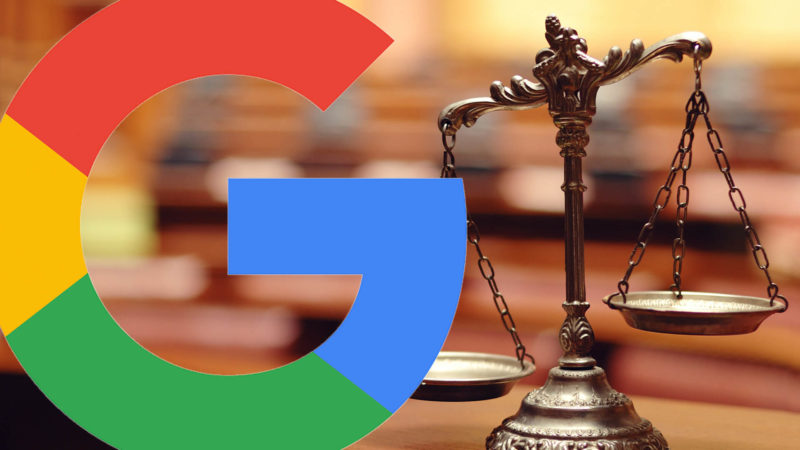Penske Media sues Google, says AI Overviews hurt revenue, traffic

Penske Media – which owns Rolling Stone, Billboard, and Variety — is suing Google. Google is accused of stealing Penske’s journalism to power its AI-generated summaries in search.
Why we care. This is the first lawsuit by a major U.S. publisher targeting Google’s AI Overviews, which have negatively impacted traffic and revenue for various types of sites. Another publisher, MailOnline, reported that AI Overviews were responsible for a 56% CTR drop.
What’s happening. Penske Media’s lawsuit, filed Friday in D.C. federal court, claims Google forces publishers to accept the use of their content in AI summaries or risk being buried in search. The suit alleges:
What they’re saying:
The complaint. You can view the PDF here.
Zoom out. This is the second lawsuit seeking compensation for Google’s AI Overviews hurting traffic and revenue.
Update. Markham Erickson, Google’s vice president of government affairs and public policy, was asked about the lawsuit at an AI summit yesterday. Here’s what Erickson had to say, as reported by The Verge:
Yes, but. As is typical with Google statements, this attempts to be nuanced, but is suspect on many counts from my reading:
Dig deeper.
Continue reading...

Penske Media – which owns Rolling Stone, Billboard, and Variety — is suing Google. Google is accused of stealing Penske’s journalism to power its AI-generated summaries in search.
Why we care. This is the first lawsuit by a major U.S. publisher targeting Google’s AI Overviews, which have negatively impacted traffic and revenue for various types of sites. Another publisher, MailOnline, reported that AI Overviews were responsible for a 56% CTR drop.
What’s happening. Penske Media’s lawsuit, filed Friday in D.C. federal court, claims Google forces publishers to accept the use of their content in AI summaries or risk being buried in search. The suit alleges:
- Google’s near-90% search dominance lets it avoid paying for content – unlike rival OpenAI, which has struck licensing deals with major publishers.
- AI Overviews appear on ~20% of searches linking to its sites and blames the feature for a one-third drop in affiliate revenue by late 2024.
What they’re saying:
- “We have a responsibility to proactively fight for the future of digital media and preserve its integrity – all of which is threatened by Google’s current actions,” Penske said.
- “AI Overviews make Search more helpful and send traffic to more sites. We will defend against these meritless claims,” said a Google spokesperson told Reuters.
The complaint. You can view the PDF here.
Zoom out. This is the second lawsuit seeking compensation for Google’s AI Overviews hurting traffic and revenue.
- Educational technology company Chegg sued Google in February with similar claims.
Update. Markham Erickson, Google’s vice president of government affairs and public policy, was asked about the lawsuit at an AI summit yesterday. Here’s what Erickson had to say, as reported by The Verge:
So, I don’t want to speak about the specifics of the lawsuit, but I can speak to our philosophy here, which is, look, we want a healthy ecosystem. The 10 blue links serve the ecosystem very well, and it was a simple value proposition. We provided links that directed users free of charge to billions of publications around the world. We’re not going to abandon that model. We think that there’s use for that model. It’s still an important part of the ecosystem.
But user preferences, and what users want, is also changing. So, instead of factual answers and 10 blue links, they’re increasingly wanting contextual answers and summaries. We want to be able to provide that, too, while at the same time, driving people back to content, valuable content, on the Internet. Where that valuable content is for users, is shifting. And so it’s a dynamic space. Ultimately, our goal is to ensure that we have an overall healthy ecosystem.
Yes, but. As is typical with Google statements, this attempts to be nuanced, but is suspect on many counts from my reading:
- The 10 blue links model may technically still exist, but they haven’t been the focus for Google in over a decade and their former prominence is long gone.
- Despite Google telling us otherwise (without showing any data), multiple studies have shown that the organic traffic Google used to send to the open web seems is in decline, especially when AI Overviews are present.
- Organic links have been increasingly buried under ads, AI Overviews, featured snippets, knowledge panels, carousels, and other Google search features.
- Google may not “abandon” 10 blue links, but I’d bet good money that Google will “discover” that their users just love (a.k.a., use) all the AI features more.
- Google isn’t merely responding to user demand. Google is shaping demand by pushing AI search features hard.
- Because the future of Google Search is AI Overviews and/or AI Mode.
Dig deeper.
- Google’s AI Overviews are hurting clicks: Pew study
- New Google AI Overviews data: Search clicks fell 30% in last year
- New data: Google AI Overviews are hurting click-through rates
- Most users only read a third of Google’s AI Overviews: Study
- Google Search of today won’t exist in 10 years, says DeepMind co-founder
Continue reading...